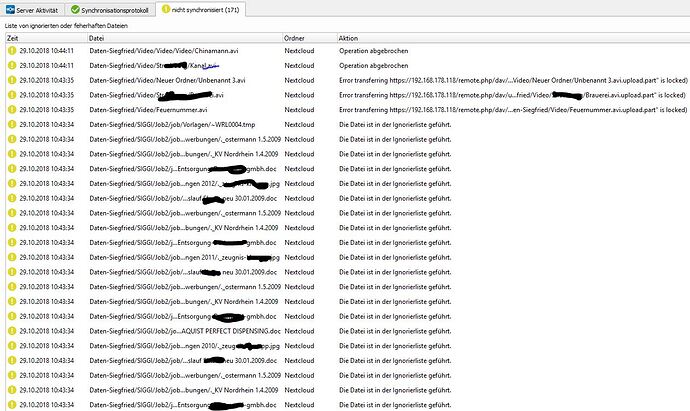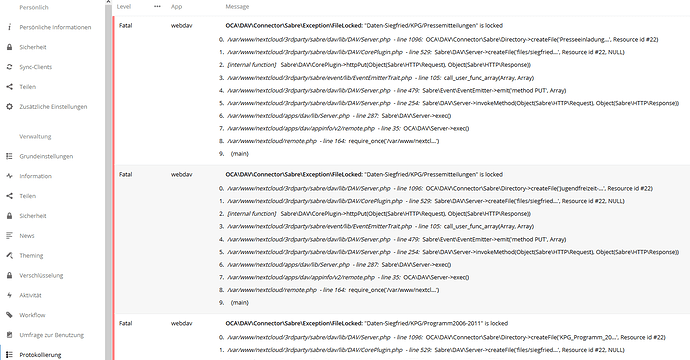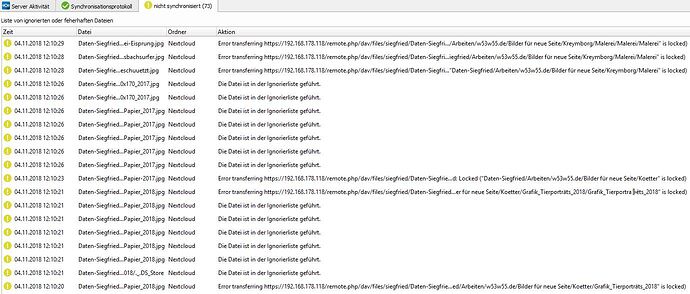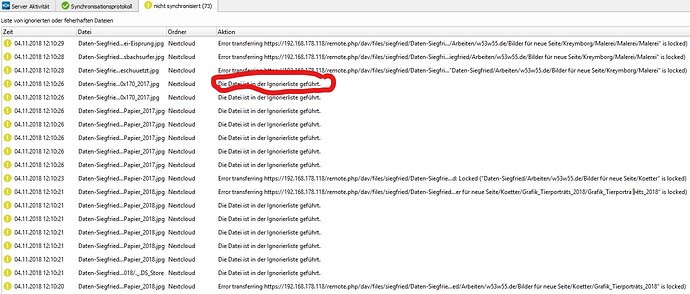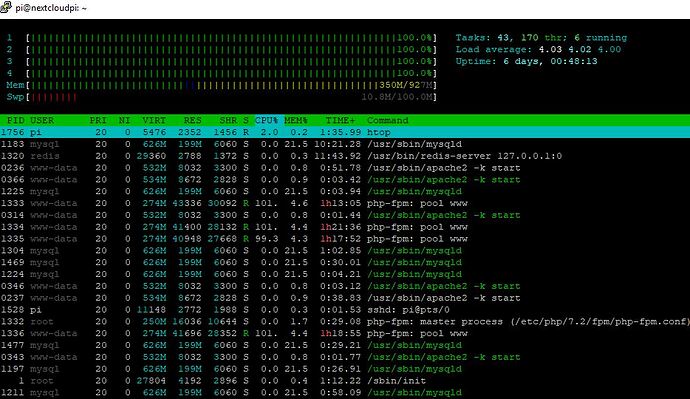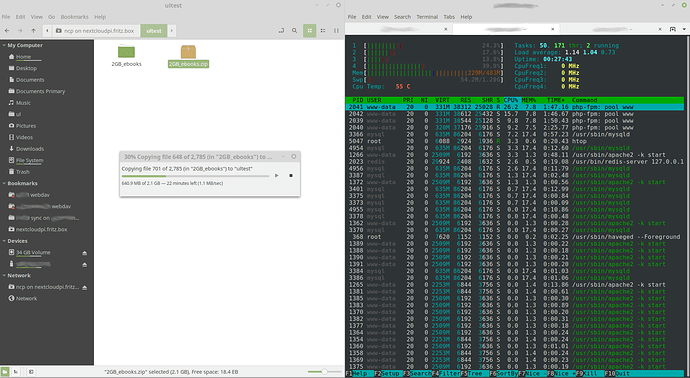I think you’ll find this comparison interesting, @Bacchus
I installed Nextcloud 14 on my NanoPi Neo Core 2 LTS, with the Nas kit, and a 2.5" SATA Samsung SSD (and I used “ncp-config” to move the Nextcloud database, and datadir onto that SSD, not the MicroSD card). I was curious as to how the performance would compare to your Raspberry Pi, on copying files into Nextcloud (over SSL-encrypted WebDAV, using my Linux Mint’s Nemo File Browser).
For testing, I had a 2GB .zip file, which uploaded in 3:03, or 10.9 MB/sec average (Note: If that same 2GB file were uploading through FTP into the very same hardware, it would instead get 29.9 MB/sec). The NanoPi’s 4 cores all worked about 15% average, each, and the load average stayed at about 1.3 the whole transfer. The CPU was about 45 deg C max, in a room which had an ambient temp. of about 30 deg C.
I also had a folder containing 2GB of many very small files (2,785 files of varying sizes). Copying the folder in took 34:11, or 1.0 MB/sec average (Note: If that same 2GB folder were uploading through FTP into the very same hardware, it would instead get 18.7 MB/sec). The NanoPi’s 4 cores all worked about 25% average, each, and the load average peaked out at a max of about 1.5, but was usually like 1.2 the whole transfer. The CPU slowly climbed up to 62 deg C, in a room which had an ambient temp. of about 30 deg C.
Pictured just below: on the left is Nemo file Browser copying in the 2GB folder over WebDAV, and on the right, you see an htop running on the NanoPi, running Nextcloud 14:
This performance might sound really poor (especially on many tiny files), but at least the NanoPi Neo Core 2 LTS didn’t fall on its face like the Raspberry Pi. I would suggest that the NanoPi Neo Core 2 LTS, with the NAS kit and an SSD is sort of like a bare minimum for an office with like 1 or 2 people in it, who are just storing documents, etc.
IMHO, You are just sort of torturing yourself far too much, just to save a very small amount of money, if you go any lower than the NanoPi Neo Core 2 LTS (with an SSD).
I don’t work for FriendlyElec in any way (the makers of the NanoPi Neo Core 2 LTS), BTW.
Edit: when I used an ethernet cable to connect my laptop to my wifi router, then re-ran the tests (such that I had an all-Ethernet connection between my laptop and the Nextcloud server), my average upload speeds improved:
- When uploading the 2GB .zip file, the speed jumped from 10.9 MB/sec (with wifi-from-laptop) up to 17.2 MB/sec (all-ethernet), average. That’s considerably closer to my FTP test (which I’m almost certain I did as all-Ethernet), which got me 29.9 MB/sec .
- When uploading the 2GB folder of many tiny files, the speed very slightly improved from 1.0 MB/sec (with wifi-from-laptop) up to 1.1 MB/sec (all-ethernet), average. That’s still a far cry from the FTP test, which got me 18.7 MB/sec
